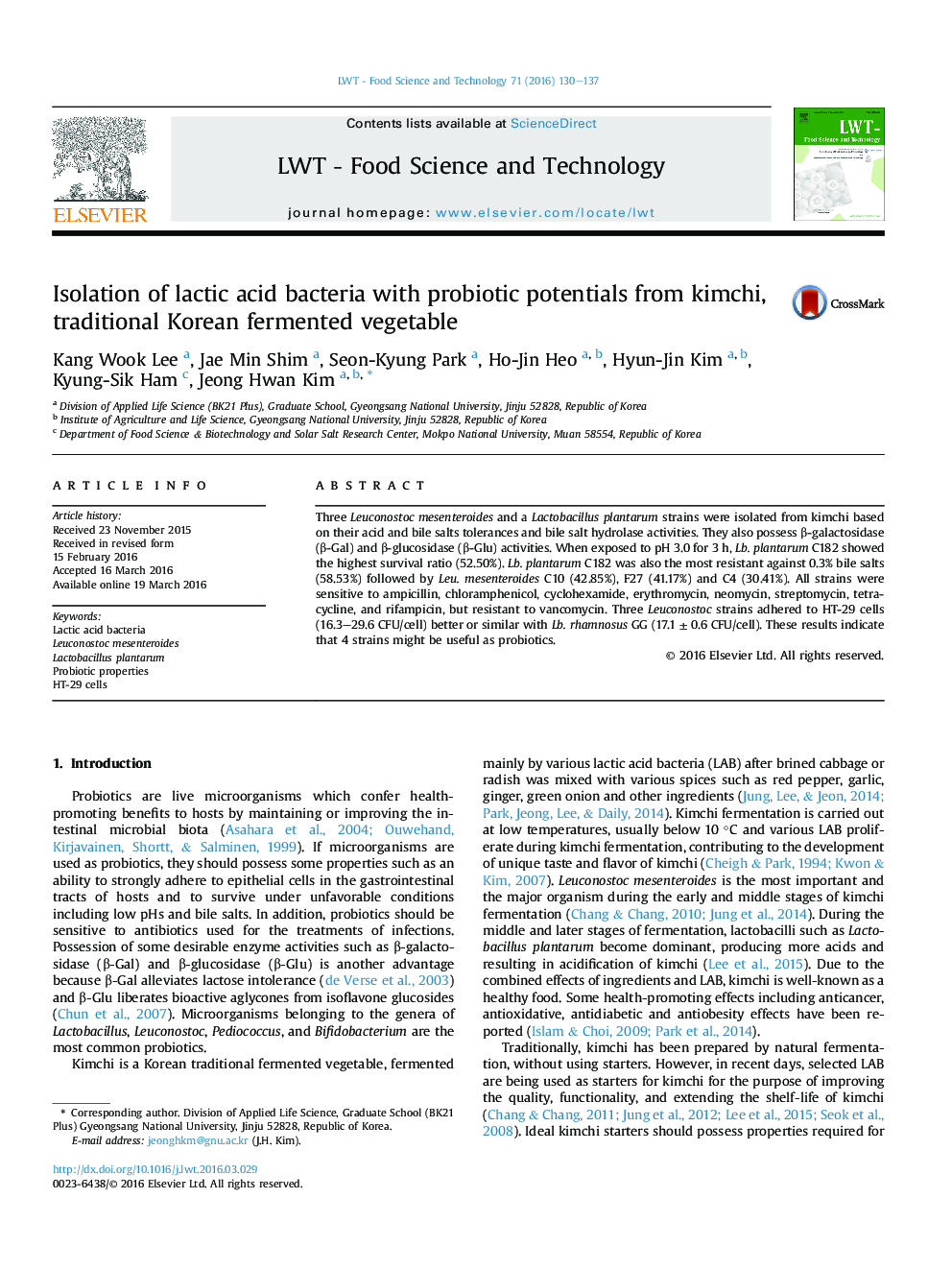| Article ID | Journal | Published Year | Pages | File Type |
|---|---|---|---|---|
| 4563520 | LWT - Food Science and Technology | 2016 | 8 Pages |
•Four lactic acid bacteria strains were isolated from kimchi.•Probiotic properties of 4 isolates were evaluated.•Lactobacillus plantarum C182 showed strong resistance against low pH and bile salts.•Three Leuconostoc strains possessed high adhesion capacities to HT-29 cells.•Leuconostoc mesenteroides F27 and Lb. plantarum C182 can be used as potential probiotics.
Three Leuconostoc mesenteroides and a Lactobacillus plantarum strains were isolated from kimchi based on their acid and bile salts tolerances and bile salt hydrolase activities. They also possess β-galactosidase (β-Gal) and β-glucosidase (β-Glu) activities. When exposed to pH 3.0 for 3 h, Lb. plantarum C182 showed the highest survival ratio (52.50%). Lb. plantarum C182 was also the most resistant against 0.3% bile salts (58.53%) followed by Leu. mesenteroides C10 (42.85%), F27 (41.17%) and C4 (30.41%). All strains were sensitive to ampicillin, chloramphenicol, cyclohexamide, erythromycin, neomycin, streptomycin, tetracycline, and rifampicin, but resistant to vancomycin. Three Leuconostoc strains adhered to HT-29 cells (16.3–29.6 CFU/cell) better or similar with Lb. rhamnosus GG (17.1 ± 0.6 CFU/cell). These results indicate that 4 strains might be useful as probiotics.
